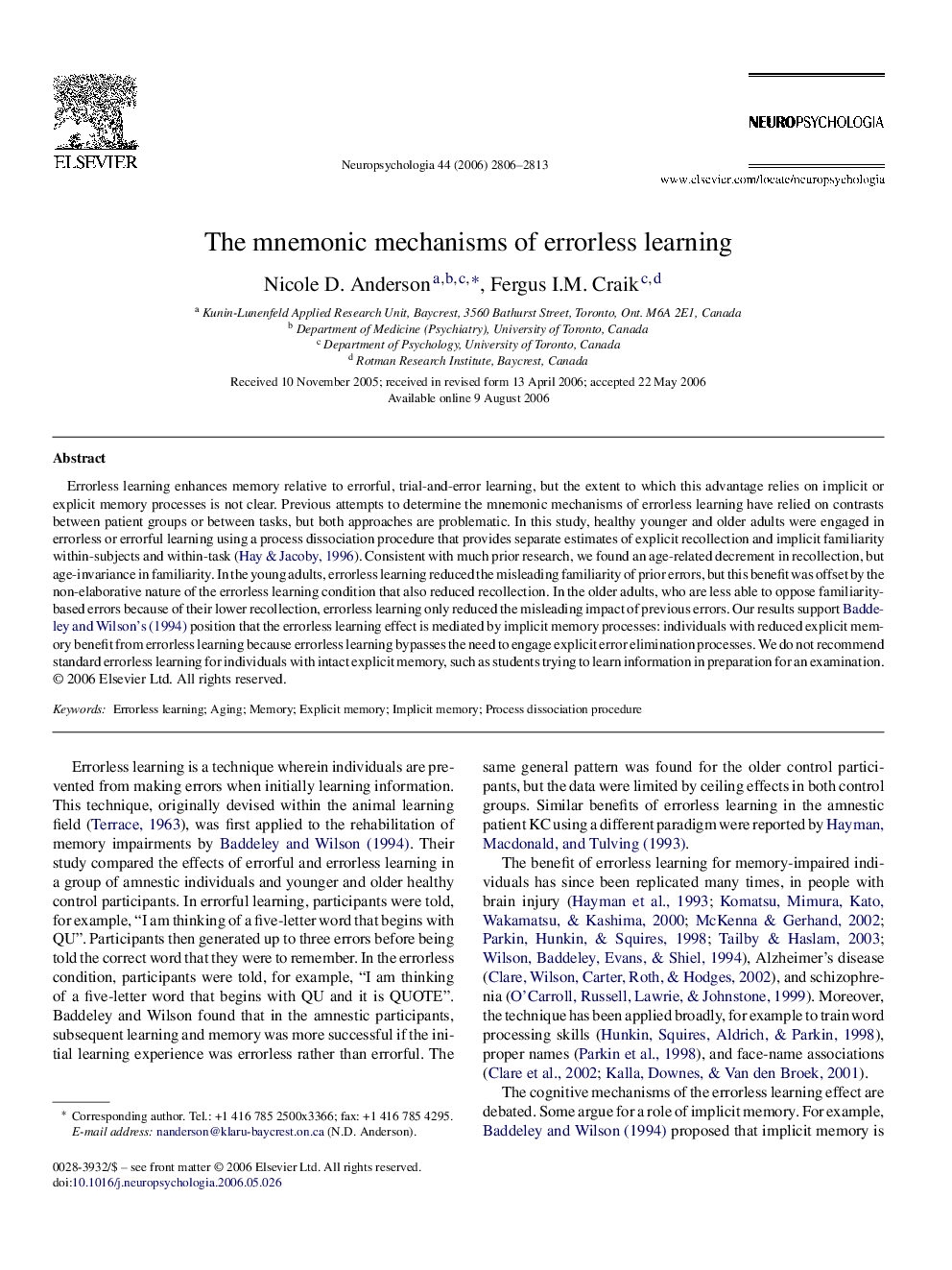| Article ID | Journal | Published Year | Pages | File Type |
|---|---|---|---|---|
| 945855 | Neuropsychologia | 2006 | 8 Pages |
Errorless learning enhances memory relative to errorful, trial-and-error learning, but the extent to which this advantage relies on implicit or explicit memory processes is not clear. Previous attempts to determine the mnemonic mechanisms of errorless learning have relied on contrasts between patient groups or between tasks, but both approaches are problematic. In this study, healthy younger and older adults were engaged in errorless or errorful learning using a process dissociation procedure that provides separate estimates of explicit recollection and implicit familiarity within-subjects and within-task (Hay & Jacoby, 1996). Consistent with much prior research, we found an age-related decrement in recollection, but age-invariance in familiarity. In the young adults, errorless learning reduced the misleading familiarity of prior errors, but this benefit was offset by the non-elaborative nature of the errorless learning condition that also reduced recollection. In the older adults, who are less able to oppose familiarity-based errors because of their lower recollection, errorless learning only reduced the misleading impact of previous errors. Our results support Baddeley and Wilson's (1994) position that the errorless learning effect is mediated by implicit memory processes: individuals with reduced explicit memory benefit from errorless learning because errorless learning bypasses the need to engage explicit error elimination processes. We do not recommend standard errorless learning for individuals with intact explicit memory, such as students trying to learn information in preparation for an examination.
